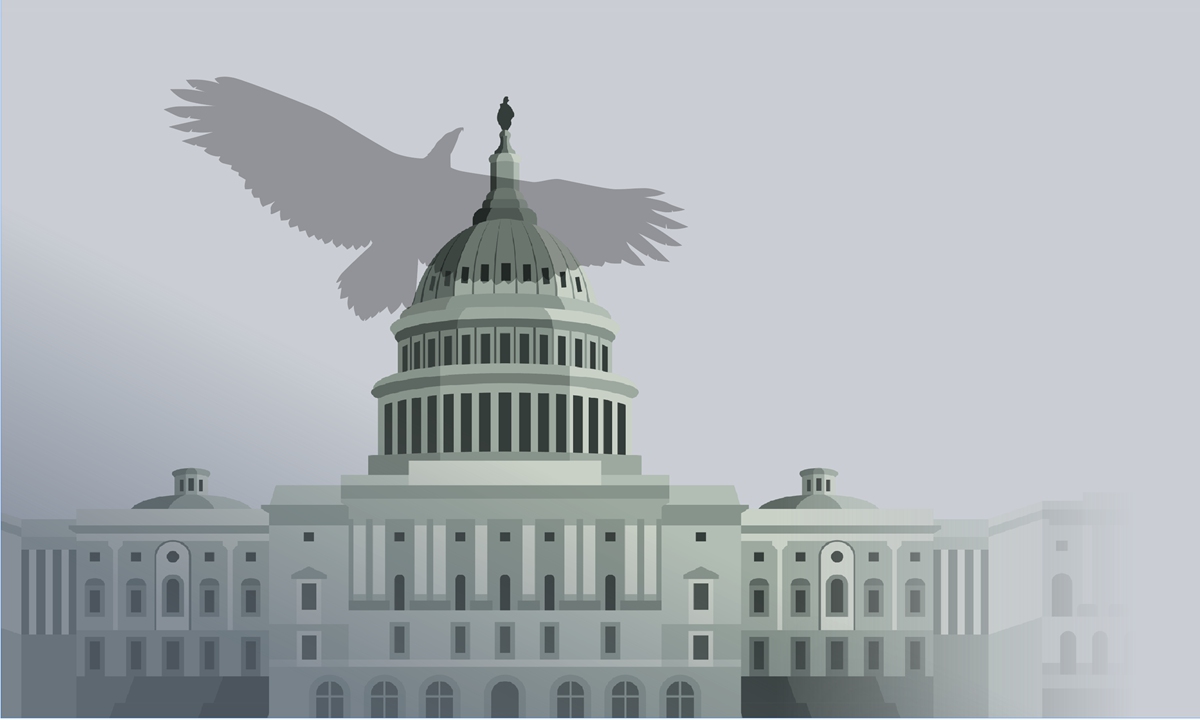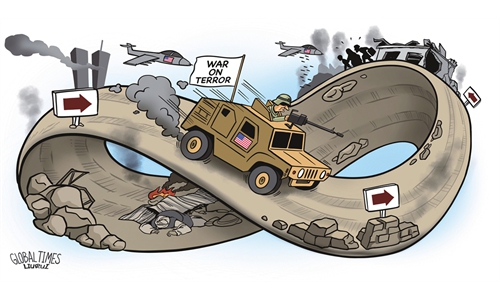
Photo: VCG
Editor's Note:
After a period of icy relations between China and the US, world-renowned US political scientist who coined the term "soft power," former dean of the Harvard Kennedy School of Government and former US assistant secretary of defense, Joseph S. Nye Jr. (Nye), said signs of efforts to resurrect China-US cooperation are emerging, in an exclusive interview with Global Times (GT) reporter Li Aixin. As he is talking, reports show that the two countries are opening new lines of communication to tackle contentious issues. The real existential danger is if the US and China "blunder into war." However, that would be "very unlikely," Nye said, adding that the pendulum of the bilateral ties "will swing back."
GT: In an interview with the Global Times in 2014, you said Chinese culture is its soft power. Are you still attracted to Chinese culture today?
Nye: Yes, if one looks at traditional Chinese culture, it's very attractive to many people. I always think back to the Expo 2010 Shanghai, which was a marvelous display of traditional Chinese culture. I think anybody who went to that exposition has to be attracted to China. Traditional Chinese culture is quite different from modern culture where there are more problems in terms of the control of information and the limitations on artists. Traditional culture still provides a great deal of soft power.
GT: In your new book, Soft Power and Great-Power Competition: Shifting Sands in the Balance of Power Between the United States and China, you said, the US-China relationship should maintain a "cooperative rivalry." As we witness more rivalry and less cooperation, and hear more voices from the US which want pure competition and no cooperation, can the current China-US relationship be counted as "cooperative rivalry"?
Nye: You're correct that we spend too much time on the competition and not enough time on the cooperation. But I think what you are seeing are some signs of efforts to resurrect cooperation. This can be seen on the issues of climate, with US Climate Envoy John Kerry's visit this summer. You can see it with the visit and the speeches by Janet Yellen, the treasury secretary, talking about the stabilization of the world economy. You can see it when it comes to issues like the non-proliferation of nuclear weapons. These are all areas where we can cooperate even while we compete.
GT: Increasing high-level visits are cooperative signs. Meanwhile, we are also seeing an increase in policies and moves of containment and decoupling from the US. China is concerned that the US talks the talks but does not walk the walk. Do you think it's understandable that China has these concerns?
Nye: Total decoupling of the US and Chinese economies is something that would be so expensive for both countries as well as for the world economy. That's not at all realistic. What sometimes is called selective decoupling in areas which affect national security is likely to increase. But as the National Security Advisor Jake Sullivan puts it, we want to build a high fence around a small yard. The danger is that the yard expands. So far, I think the Biden administration is trying to keep the yard restricted.
GT: Do you think Kissinger's China trip will make a difference to the US' China policy?
Nye: It helps. The more contacts, at all levels, the better. It's even more important as President Xi and President Biden agreed in Bali last year - to have more contacts of officials. But having former officials like Henry Kissinger and having students and tourists… make it less likely that the two countries will misunderstand each other. Henry's visit was useful. But I think it's even more important to have contacts between serving officials.
GT: You have been stressing that China does not pose an existential threat to the US, a rational point of view amid current political atmosphere. Are you optimistic about a return of more rational voices in US political circles?
Nye: The danger I see in Washington is what I might call demonization of China - seeing only the bad aspects and not having a balanced view. However, among the experts in the more moderate politicians, there's still an understanding of what I said, that China is not an existential threat to the US. The only way in which we would become existential threats to each other would be if we blundered into a war. If we have a major war between the US and China, it would be devastating to both countries. That's when we would make the mistake, which would turn a competitive relation into something that I call an existential threat.
GT: How likely is it that China and the US will blunder into a war would you say?
Nye: Very unlikely. The leadership in both countries realizes the enormous costs this would be involved and are going to be cautious when it comes to other types of events that could trigger off a war. It doesn't mean it couldn't happen. Human history is full of mistakes that we all make, but I would say that the probability of this happening is very low.
GT: We have seen the pendulum of the US policy on China swinging, and anti-China sentiment for some time has been growing. When and to what extent could the pendulum swing back?
Nye: It's interesting. If you take a long enough historical view, let's say since 1949, when the Communist Party of China came to power, there have been several swings which have generally taken about 20 years.
In the 1950s and 1960s, you had the two countries going to war with each other in Korea. Then after Nixon's visit in the early 1970s, you had almost two decades of cooperation against the Soviet Union. And then following that, you had almost two decades of engagement economically. And then since about 2015 or so, the pendulum has swung the other direction, more toward the competition. I don't know whether it's going to take 20 years, suggesting it would be 2035 before we see this swing back.
But human history is not that predictable. Certainly, there has been a swing in the pendulum, as you said. How long will it take before it swings back? I don't know, but I think it will swing back, when the US and China realize the benefits of cooperation, whether it's in areas such as climate, pandemic, non-proliferation, or dealing with new technologies like artificial intelligence. There may be more things which will symbolize the benefits of cooperation. Also, when people become more realistic about the fact that China is not a threat, and in China, the US is not a threat, that makes the conditions for cooperation improve, but how quickly that happens is hard to tell.
Having projects that we can work on together helps to counter the view that everything is conflict and competition. That would suggest that we do more together in areas like climate or world health and other areas. I'd like to see more of that to balance out the competition. The competition is going to continue. But we should not forget that there's also an important value in cooperation.
GT: US culture and value are still attractive. Yet observers are also puzzled when seeing US political infighting and a former president being indicted on criminal charges. Do you think political polarization has weakened US "soft power"?
Nye: To some extent, yes. If you look at the events of January 6 and the aftermath, this made the US less attractive as a model of democracy. The political polarization that we're going to see increasing, as we approach the 2024 election, will probably remind people of that.
Nevertheless, a good deal of American soft power comes not from politics, but from culture and civil society. Those are things like the university system, the role of foundations and Hollywood. I don't think they have been diminished much by the political situation.
There's some loss of soft power because of political polarization. But there are other sources of soft power that may be more important than politics.
GT: Trump wanted to "Make America Great Again," Biden vowed to "Battle for the Soul of the Nation." Which takes priority, if the US wants to maintain the leading position in the world?
Nye: Having a healthy economy and society at home is probably the most important thing. There is a problem of political polarization, but the economy has been quite healthy despite the aftermath of COVID. Keeping a healthy economy, which is innovated and open to the rest of the world, is the single most important thing that we can do. After that, maintaining our support for alliances and international institutions is important for international leadership. But it has to be based on the bedrock of a healthy society at home.

Soft power and great-power competition.


